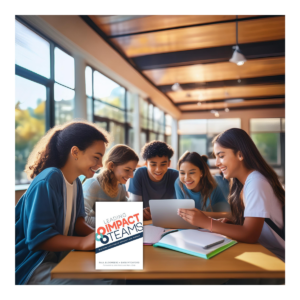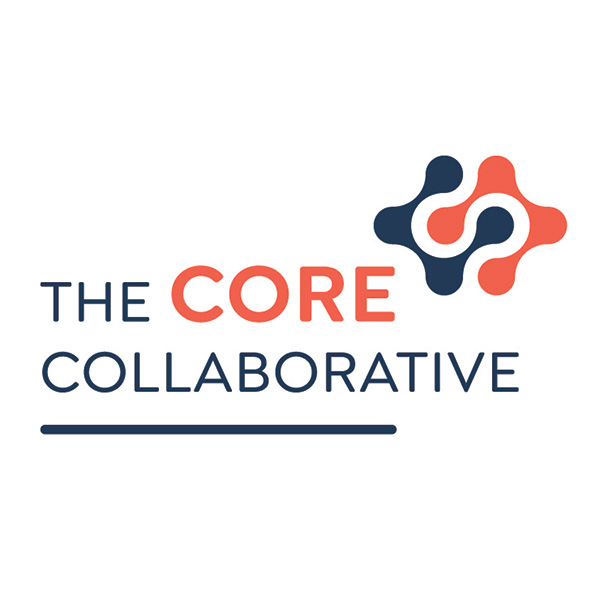Imagine walking into a classroom where every student’s voice echoes with confidence and conviction, where their dreams and aspirations are nurtured with equal fervor. For far too long, our schools and systems have overlooked the unique needs and potentials of marginalized students, stifling their voices and limiting their opportunities.
Advancing learner agency changes this narrative. It is the key to unlocking the untapped potential within each student, where the cultural background and lived experiences of absolutely every learner is their superpower. Fostering learner agency not only enhances academic outcomes but also contributes to the holistic development of students, preparing them to become proactive, responsible, and lifelong learners.
Learner agency refers to the capacity of students to act independently and make choices about their learning process while contributing positively to others. When a classroom emphasizes learner agency, several transformative impacts can be observed, creating a dynamic and engaging environment conducive to growth and progress. Here are some key observations you might encounter in such a classroom.

1. Increased Student Engagement
One of the most noticeable impacts of focusing on learner agency is a marked increase in student engagement. When students have a say in what and how they learn, they are more likely to be interested and invested in their studies. You’ll observe students actively participating in discussions, asking questions, and eagerly contributing their ideas. This heightened engagement often translates to deeper understanding and retention of the material.
2. Enhanced Motivation and Ownership
Students in an agency-focused classroom exhibit a strong sense of motivation and ownership over their learning. They set personal goals, monitor their progress, and take responsibility for their achievements and areas of improvement. This intrinsic motivation is a powerful driver, leading to a more resilient and determined approach to overcoming challenges. You’ll see students celebrating their successes and reflecting on their learning journeys.
3. Diverse Learning Pathways
Diverse learning pathways characterize a classroom that prioritizes learner agency. Instead of a one-size-fits-all approach, students pursue various projects, activities, and assessments that align with their interests, strengths, and learning styles. You might observe students working on individualized projects, collaborating in small groups, or exploring topics through hands-on experiments and creative expressions. This diversity fosters a richer, more inclusive learning environment.
When students are given the power to make decisions about their learning, they become active participants in their education, breaking free from the constraints of a one-size-fits-all system.
4. Collaborative Learning Environment
In such a classroom, collaboration is key. Students are encouraged to work together, share insights, and support each other’s learning. You’ll notice a shift from teacher-centered instruction to a more collaborative and cooperative learning model. Students often take on leadership roles, facilitating discussions, and guiding their peers. This collaborative spirit enhances social skills and builds a sense of community within the classroom.
5. Critical Thinking and Problem-Solving
Learner agency nurtures critical thinking and problem-solving skills. Students are given opportunities to explore real-world problems, ask questions, and seek solutions. You’ll observe students engaging in inquiry-based learning, where they formulate hypotheses, conduct research, and present their findings. This process not only deepens their understanding but also equips them with essential skills for future academic and professional endeavors.
6. Self-Empowered and Confident Learners
Students in an agency-focused classroom exhibit increased confidence and empowerment. They are aware of their strengths and areas for growth, and they feel capable of influencing their learning outcomes. You’ll see students advocating for their needs, seeking feedback, and making informed decisions about their education. This sense of empowerment extends beyond the classroom, fostering lifelong learners who are prepared to navigate an ever-changing world.
7. Reflective Practices
Reflection is a critical component of learner agency. In these classrooms, students regularly engage in reflective practices, assessing their progress and identifying areas for improvement. You’ll observe students maintaining learning journals, participating in peer reviews, and engaging in self-assessment activities. This reflective approach promotes a growth mindset, encouraging students to view challenges as opportunities for learning and development.
Conclusion
The observable impacts of focusing on learner agency are profound and far-reaching. By empowering students to take charge of their learning, educators create a vibrant and supportive environment that nurtures engagement, motivation, collaboration, and critical thinking. As we continue to evolve our practice, placing learner agency at the forefront promises to cultivate empowered, confident, and capable learners ready to thrive in an ever-changing world.
As educators, we dream of classrooms where every student feels seen, heard, and valued. Yet, the reality for many students, especially those from underserved communities, is often starkly different. The promise of equity in education calls us to reimagine our approaches, to ensure that every learner has the agency to shape their own learning journey. When students are given the power to make decisions about their learning, they become active participants in their education, breaking free from the constraints of a one-size-fits-all system.


